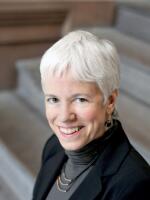An independent budget watchdog group agrees with an idea that Republican candidate for New York governor Marc Molinaro has to help bring down local property taxes. But it also says there is a tradeoff to any potential savings.
The Citizens Budget Commission is nonpartisan and does not endorse any political candidates. But the group does back an idea proposed by the GOP’s Molinaro for a state takeover of county Medicaid costs.
The group’s Patrick Orecki says it would help alleviate New York’s very high local property taxes.
“It’s unique and counterintuitive and regressive,” Orecki said.
The lowest income tax payers contribute a higher proportionate share in property tax payments than higher income earners.
For decades, the federal government paid for half of New York’s total Medicaid budget. The state and its counties evenly split the remaining costs. In recent years, the state has capped the growth of the counties’ Medicaid costs at 3 percent per year, with the state paying for any amount above that. Since 2015, the counties' costs for Medicaid have been frozen at $7.6 billion.
Nevertheless, says Orecki, it hasn’t solved the problem. He says New York still requires more local contributions to finance Medicaid services than all other states in the nation combined.
“By freezing the local share, you also effectively freeze in the inequities that exist,” he said.
Molinaro, who is the Dutchess County executive, says his plan could reduce property taxes by about one-third. Molinaro introduced the idea in late September.
“Over five years, our plan would reduce the property tax burden on New Yorkers by almost 30 percent,” Molinaro told a meeting of the state’s Business Council.
He told business leaders he would not have to “gut services” to pay for the takeover.
Molinaro says his plan would also include ending unfunded mandates to counties, enacting a permanent state spending cap and making the current 2 percent per year property tax cap permanent. He would also curtail Democratic Governor Andrew Cuomo’s economic development programs that offer large grants to select private companies and costs billions of dollars.
Orecki, with Citizens Budget Commission, has other ideas on how to pay for the state takeover. He says the state could increase the sales tax from 4 percent to nearly 6 percent, or the state could swap a portion of local sales tax revenue for the local Medicaid costs. But he says it can’t just result in a cost shift from one type of regressive tax to another.
Citizens Budget Commission also recommends getting rid of the STAR school property tax reduction program. STAR provides a political advantage to state lawmakers, as rebate checks go to property owners just before Election Day.
And, Orecki says the state could try to absorb its costs through “efficiencies." He points out that Cuomo, earlier in his term, formed a Medicaid Redesign panel with all of the major stakeholders, including hospitals and the health care worker unions, which resulted in savings.
But he admits none of the choices are easy.
“All of these options are difficult,” Orecki said.
Cuomo is opposed to state takeover of Medicaid, saying it would lead to undesirable spending cuts or higher state income taxes.
“Where does the state get $7.6 billion?” Cuomo asked. “You either have to raise taxes on the state side or you have to cut education.”
The Citizens Budget Commission report also finds some good news for state and local government finances. Enrollment in Medicaid has leveled off in recent years, and is expected to remain flat for the next few years, slowing the growth of the program.













